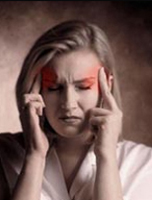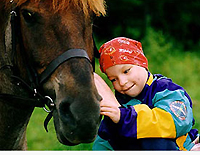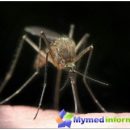Nervous ticks - in our time are not uncommon. Stress, nervous shocks, excessive fatigue - our satellites of life. How serious it is?
Content
Kids often blink by eyes. Girls - small coquettes when they are built, boys - hooligans, when someone is teased. And it looks always pretty funny. But there are situations where frequent blinking of the child is not a game, but the reaction of the nervous system. And this is already a signal that the child needs help. What you need to take if your child has ticks, we will talk about this with a candidate of medical sciences, a doctor of the Higher Category, Children's Neuropathologist Zaitsev Sergey Vladimirovich
Mysterious ticks
- Absolutely right. And it seems to me, such a perception of Tikov is due to the fact that the state when the child «Neither of course starts blinking with eyes» How moms say, meets most often. Therefore, let's first understand what ticks are. Tiki is involuntary, that is, in addition to the will (child), stereotypically repeated, short cuts of individual muscles or muscle groups.
External manifestations are usually monotonous, t. E. The same muscles are reduced. Most often ticks arise in the muscles of the face, neck…. Not to notice them. With the ticks of the muscles of the face, the child suddenly wrinkles his forehead, frows the eyebrows, grieves his eyes, hesitates his nose, folds the lips with a tube, while cutting can be captured half or all face muscles.
If a child has teaks in the muscles of the neck, then he periodically turns his head as if he is crawled, or he shows his shoulders, as if correcting uncomfortable clothes. In any case, the mother should pay attention if such moments appeared in the child's behavior.
Do not hurry to scold a child if it seems to you that he has become overly grimaced, then he pulls his nose, then the mouth shrieks, then pulls his shoulders. It is more likely that a child is not able to control his actions, so it would not be bad for you to consult a neuropathologist, it may well be ticks.
Causes of the appearance of Tikov
 - You have changed that, coming to you at the reception of mommies, often use the expression «The child began to blink or with this». But any problem has «His root of evil» Why can the child have teaks?
- Tiki really never happen in an even place, as it sometimes seems to moms. Children are very sensitive to problems in the family, even to those who are not concerned from the point of view of parents. It happens that the child has any trouble in the school in the yard and it leads to excessive internal experiences. Thus, insignificant as it seems adults of the child's grief can lead to a certain coherent circumstances to the nervous breakdown.
- You have changed that, coming to you at the reception of mommies, often use the expression «The child began to blink or with this». But any problem has «His root of evil» Why can the child have teaks?
- Tiki really never happen in an even place, as it sometimes seems to moms. Children are very sensitive to problems in the family, even to those who are not concerned from the point of view of parents. It happens that the child has any trouble in the school in the yard and it leads to excessive internal experiences. Thus, insignificant as it seems adults of the child's grief can lead to a certain coherent circumstances to the nervous breakdown.
You can also note the hereditary factor in the occurrence of teaks, while the genes can «nap» Several generations. That is, if ticks arose from your child, it may well be that and your grandfather suffered them, and maybe you were once.
It is worth noting that ticks may occur and against the background of injury of the head or neuroinfection, as well as when using some drugs, such as neuroleptics or psychostimulants - but this is a separate conversation. Often, the causes of the occurrence of Tikov should be sought in the internal discomfort of the child, which is formed from the problems surrounding it.
Speaking of ticks, we are in principle talking about starting mechanisms that is from what they may arise or about their external manifestations. But experts still do not know the true nature of Tikov. Tiki can suddenly begin and will also fall suddenly, so they remain mysterious things even for medicine.
What «Border states»
- We know that ticks are customary to the so-called «border state» - The term is not only neurological, but also psychiatric. So to what expert you need to ask my mother if you have teaks?
- The problem of Tikov is really on the border of several specialties: neurology, psychology and psychiatry. Usually a standard survey set is used: the child is prescribed EEG (electroencephalogram), it is necessary in order to make sure that the child has no physiological basis for the occurrence of ticks and he needs primarily psychotherapeutic assistance. The consultation of a child psychologist is appointed, and finally, the neurologist defines the observation and treatment plan.
According to statistics, ticks arise from boys three times more often than girls. Age of 5-7 years. Eight of the ten sick ticks may disappear by 12-13 years old.
We treat Tika
- There is such an opinion that teaks can pass on their own. Hence the question always whether they should be treated?
- After all, all different and spectrum of their manifestations are huge: from fast passing obsessive morgue, which some parents may not notice, to chronic common motor and voice ticks with mental disorders (for example, turret).
Disease «Goris de la Tourette» - it is the most severe form of the disease. Tiki with it are accompanied by sudden screaming or involuntary shouting of individual words. The child becomes irritable, a decrease in intelligence can be observed.
If your baby has teaks, and you turned to the doctor, then at the beginning of the disease, even an experienced specialist is sometimes not able to accurately predict the further course of events. Therefore, it is necessary to observe the condition of the child. And if ticks interfere with him to fully live, normally communicate, they will, then, in this case, of course, it would be worth trying to get rid of them.
Although sometimes teaks can really disappear both by themselves, the truth is depends on the set of factors. The main thing in the strategy of getting rid of ticks to eliminate the reason for their occurrence is, that is, it led to their appearance: problems in the family, misunderstanding from parents, some internal difficulties of the child and TD. Mom should make a maximum of effort to establish the true attack of the current situation and try to get rid of it. There will be no reason, and ticks as a result will disappear.
Life of children with ticks
 - That is, the mother should first of all think to understand what is happening with the child. From where then in some moms such a medical business approach to the treatment of teaks?
- That is, the mother should first of all think to understand what is happening with the child. From where then in some moms such a medical business approach to the treatment of teaks?
Partly from not enough competent doctors who advised her about Tikov, partly to pass on their own desire. Yes yes and do not smile. Literally in front of you I had at the reception a boy with my mother and just about Tikov. The first thing I asked my mother: «Is everything in the family in relation to the child? », «Certainly» - As Mama reported. But during the visit, she won a child once twenty, did not immediately greeted, he said, not so sat down, not looking there. I would have started ticks, if my day was so donimali. I tried to explain to her that it would be worth starting to revise relationships with the child. She was offended, said that he came to the child to be discharged with an effective drug from Tikov, and did not teach her to live. I also promised to write a complaint (laughs). It is the belief that the tablet can solve any problem, often and interfere with this problem to cope.
- As today, neuropathologists help mothers to cope with children's teaks…
- First, this is of course psychological and pedagogical correction, this can help a children's psychologist. Secondly, mom should adjust the child's life mode. Introduce a diet, he should not give foods containing caffeine: tea, coffee, cola, chocolate. It would not be bad to record a child in the sports section or may simply begin to pay more time to sports activities, but in watching TV and endless games on the computer it is better to limit it. If necessary, medical treatment is carried out, courses 3-4 times a year.
Tips parents
- So that you advise as «Prevention» Tikov? - Prevention of ticks is not at all difficult. Just parents need to try to build relationships with a child in trust. Let the family be a psychologically comfortable and calm atmosphere. In relation to her child, follow the principle of less pressure - more understanding. In a word, the soulful and physically healthy lifestyle will help the child in the future to avoid the emergence of such not very pleasant phenomena as ticks.









